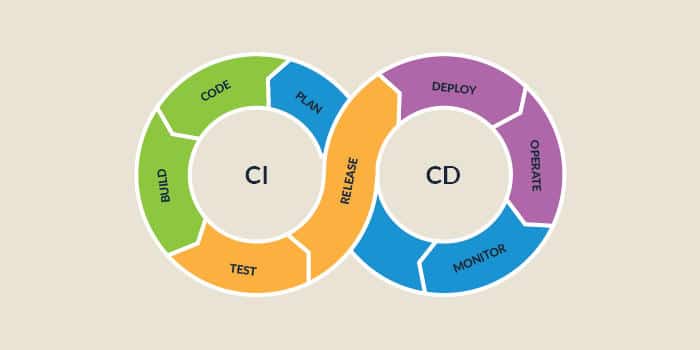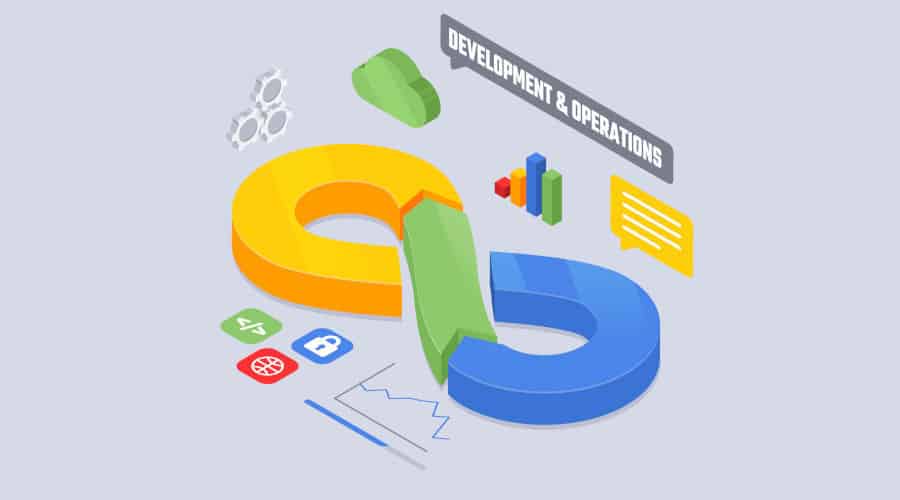Combining software development and software administration, DevOps is a rare resource for companies. If you have the required skills, your entry into the job market is almost guaranteed. Almost, because first you have to catch the recruiter's eye with your curriculum vitae. DataScientest gives you all the tips you need to make your DevOps CV stand out from the crowd.
Specify all your technical skills on your DevOps CV
As a future DevOps, you need to showcase all the technical skills you have. Here are the main ones.
IT architecture
IT solutions are based on a specific architecture, encompassing various operating systems (OS) and technical tools. On your DevOps CV, don’t hesitate to demonstrate solid expertise in the relevant technologies. In other words, those that the company you’re applying to uses. So, before you even start writing your curriculum vitae, start by finding out about your potential future employer’s technological choices.
By demonstrating your in-depth knowledge of the infrastructure currently in use, you’ll be able to stand out from the crowd and land an interview.
However, don’t overlook the technologies you master that are not used in-house.
In the course of your projects, you’ll certainly come into contact with other infrastructures.
Programming languages
Even if DevOps plays an intermediary role between development and operational teams, it is regularly called upon to write code.
Or at the very least, they need to understand how it works in order to manage it efficiently during production.
Mastery of several programming languages is therefore a sine qua non for effective work in this field. Among the computer languages to highlight on your DevOps CV, we can cite the following:
As a general rule, when you submit your application, mention all the tools you have used in the course of your professional and/or academic experience.
L’intégration
The CI/CD principle (Continuous Integration and Deployment) is one of the most effective ways of working in DevOps. Particularly as the production of new software focuses more on the integration of platforms and services than on the simple coding process.
DevOps engineers must therefore master integration tools such as Docker. If you’ve used this tool in previous web projects, don’t hesitate to mention it on your DevOps CV.

Deployment
Continuous deployment is an important part of DevOps. As such, you need to master various technical tools, such as Puppet, Chef and Vagrant. These allow you to improve your code to meet end-user expectations.
It’s all the more important to highlight them on your DevOps CV as companies are constantly looking for ways to optimize their resources. Faster, more efficient applications are an excellent way of meeting their expectations.
But beyond management tools, it’s above all a question of demonstrating your ability to implement solutions to optimize the CI/CD process.
Safety management
In the age of Big Data, the DevOps profession must increasingly integrate security issues into all phases of development and deployment (we even talk about DevSecOps).
This transformation of the profession is easily explained by the increasing number of cyber-attacks that take advantage of weaknesses in IT applications to retrieve data.
The role of DevOps is precisely to limit these vulnerabilities through perfectly secure code. To ensure this, the code can be put to the test through vulnerability tests. But here again, you need to demonstrate your ability to master these technologies on your DevOps CV.
Don't forget soft skills
While technical skills are indispensable on a good DevOps CV, they are not the only criteria taken into account by recruiters. Personal qualities are just as important, and sometimes even more so.
Here’s a list of some of the most sought-after soft skills:
- Team-building skills;
- Communication skills;
- agility.
To back up your statements, don’t hesitate to ask for letters of recommendation from internship supervisors, former employers (especially if you’ve done a work-study program) or even teachers.
Showcasing your mobility
More and more tech companies are looking for DevOps people, and although most are based in the Paris region, there are jobs all over France and even abroad. So if you’re willing to relocate, don’t hesitate to mention it on your DevOps CV. It shows your motivation to find a job.
And if you find a position abroad, it could also give you an even more enriching experience (both humanly and professionally). And don’t forget that in some foreign countries, DevOps salaries are even more attractive than in France.
List all training courses attended
The DevOps profession is a multi-disciplinary one, bringing together a multitude of skills. If you’ve had training in web development, infrastructure administration, data engineering, cloud computing, Big Data… make sure you mention this on your DevOps CV. And of course, if you’ve taken a specialized DevOps training course (like the one at DataScientest), now’s the time to mention it.











